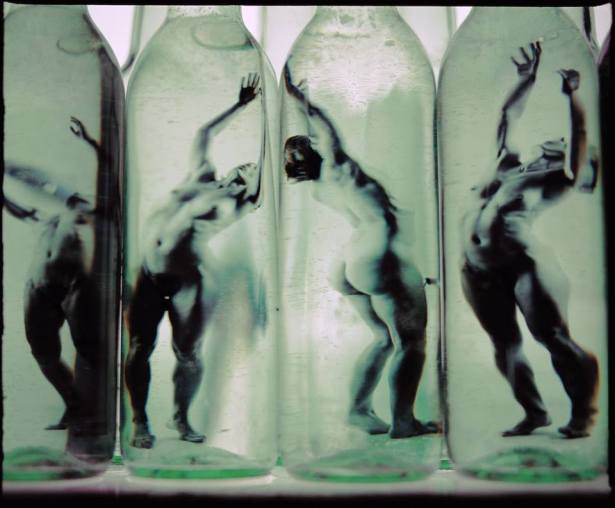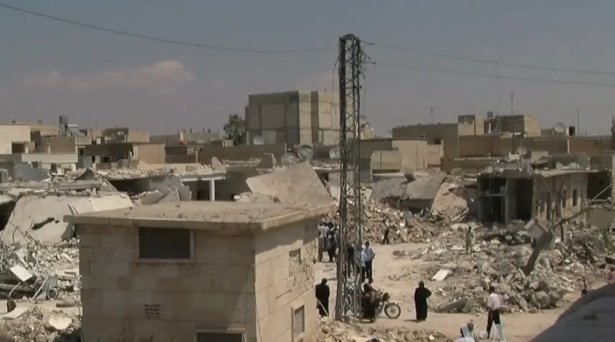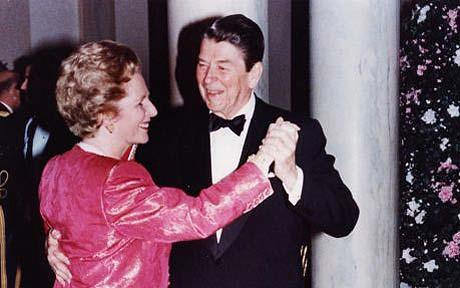
Ναι, θα γίνω κι εγώ ένας ακόμα που γράφει στο κοινωνικό μέσο της επιλογής του για τις επιθέσεις στο Παρίσι, για τον πόνο του για τις αδίκως χαμένες ζωές, για την τρομοκρατία, για το αν πρέπει να αντιδρούμε χρησιμοποιώντας διέσεις (hashtags) με προσευχές και βάφοντας τις φωτογραφίες μας τρικολόρ. Μη νομίζετε πως είμαι κανένας διανοούμενος επειδή γράφω σε blog και όχι στο facebook, απλώς θεωρώ πως η προσοχή που δίνει κανείς σε κάτι που διαβάζει στο facebook είναι εμφανώς μειωμένη σε σχέση με αυτή που δίνει όταν έχει μπει στον κόπο να ανοίξει μια καινούρια καρτέλα σε μια καινούρια σελίδα. Και ναι, θα ήθελα να προσέξεις αυτά που θα πω, αγαπητέ αναγνώστη.
1) Ο κόσμος δεν είναι μόνο η Δύση. Σίγουρα, δεν είμαστε συνηθισμένοι στο να ακούμε για βομβιστικές επιθέσεις στην καρδιά της Ευρώπης, ενώ αντιθέτως οι καμικάζι στη Μέση Ανατολή είναι business as usual. Ωστόσο, κάθε μία από τις 43 ζωές που χάθηκαν στο νότιο τμήμα της Βυρητού την Πέμπτη 12 Νοεμβρίου, δεν αξίζει λιγότερο ή περισσότερο από κάθε μία εκ των 129 που χάθηκαν την επομένη στο Παρίσι, ούτε από κάθε μία από τα εκατομμύρια ζωών που χάνονται εδώ και τέσσερα και παραπάνω χρόνια στη Συρία. Η επιλεκτική ευαισθησία μας είναι τόσο, μα τόσο ειρωνική. Από τη μία, πάλι καλά που αντιλαμβανόμαστε πού και πού πως ο κόσμος δεν κινείται γύρω από τα οπίσθια της Κιμ Καρντάσιαν (δανείζομαι τη φράση από την ανάρτηση μιας φίλης στο facebook) και ευαισθητοποιούμαστε για ζητήματα ελαχίστως σοβαρότερα, ακόμα κι αν αυτό γίνεται για να πάρουμε την έγκριση των φίλων μας για την πολιτική μας συνείδηση και τα likes τους για την bleu-blanc-rouge φωτογραφία μας. Σε καμία περίπτωση δεν λέω πως αυτή η υποκρισία απαντάται σε όλους όσοι έβαψαν τη φωτογραφία τους ή έγραψαν #PrayForParis, άλλα, όπως και να το κάνουμε, είναι μια πραγματικότητα για αρκετούς. Από την άλλη, το φαινόμενο αυτό καταδεικνύει τον εγωισμό μας, που θίγεται μόνο όταν νιώθουμε πως κι εμείς οι ίδιοι κινδυνεύουμε. Όταν είναι στο Ιράκ, στη Συρία, στο Λίβανο, στην Τουρκία, στη Νιγηρία, στην Κένυα, νιώθουμε ότι δεν μας αφορά – “είναι μουσουλμάνοι/Αφρικανοί αυτοί, έτσι λειτουργούν”, λέμε. Όταν ο τρόμος χτυπάει, όμως, στην καρδιά της Ευρώπης, ανακαλύπτουμε το σύμπαν. Αργούμε, αλλά τα πιάνουμε.

Η πυραμίδα του Χέωπα στην Γκίζα, πάνω στην οποία προβάλλονται οι σημαίες της Ρωσίας (αεροπορικό ατύχημα/τρομοκρατικό χτύπημα), του Λιβάνου (τρομοκρατικό χτύπημα) και της Γαλλίας
2) Οι πρόσφυγες δεν είναι τζιχαντιστές. Οι οικογένειες που καταφθάνουν με πλαστικές βάρκες στην Ευρώπη ξεφεύγουν ακριβώς από αυτούς τους “ανθρώπους”. Οι τζιχαντιστές, να είστε σίγουροι, δεν είναι οι καθημερινοί άνθρωποι που ξεβράζονται στις ακτές του Αιγαίου. Αυτοί δεν ταξιδεύουν (γενικά, σπανίως ταξιδεύουν) με αυτοσχέδιες βαρκούλες, αλλά με πολύ πιο προηγμένα και νόμιμα μέσα. Η Ευρώπη δέχεται κυνηγημένους ανθρώπους, το αν αυτοί οι άνθρωποι θα μετατραπούν σε τζιχαντιστές είναι θέμα της Ευρώπης και των κοινωνιών που θα τους φιλοξενήσουν. Ακροδεξιά και εθνικιστικά μορφώματα σαν το Εθνικό Μέτωπο της Μαρίν Λε Πεν θα δώσουν στους σημερινούς πρόσφυγες κάθε λόγο να στραφούν στην εξτρεμιστική δράση στο μέλλον. Η αλληλεγγύη, από την άλλη, θα τους αποτρέψει από οτιδήποτε τέτοιο. Εσύ, δηλαδή, τι θα έκανες έαν πήγαινες σε κάποια χώρα και αντιμετωπιζόσουν ως υπάνθρωπος και απόβλητο της κοινωνίας; Δεν θα αντιδρούσες κάπως; Αν όμως η κοινωνία αυτή σε υποδεχόταν με ανοιχτές αγκάλες και σε βοηθούσε να πραγματοποιήσεις τα όνειρά σου μακριά από τον πόλεμο, τι θα έκανες; Ακόμα κι αν δεν την ευγνωμονούσες, επ’ ουδενί δεν θα της έβαζες βόμβες.
3) Οι τζιχαντιστές του ΙΚΙΛ αποσκοπούν ακριβώς σε αυτή τη σπορά διχόνοιας, θέλουν να δημιουργήσουν μίσος ενάντια στο Ισλάμ, θέλουν να στέψουν τους πάντες κατά των μουσουλμάνων, προκειμένου να στραφούν και οι μουσουλμάνοι εναντίον όλων των υπολοίπων. Οι επιθέσεις στην Ευρώπη γίνονται, κατά την ταπεινή μου άποψη, με σκοπό τη στοχοποίηση των μουσουλμάνων, προκειμένου να μπορεί να επιτευχθεί η ριζοσπαστικοποίηση τους και επομένως η ένταξή τους στον “αγώνα”. Οι τζιχαντιστές προσπαθούν να εκμεταλλευτούν τα συντηρητικά ένστικτα της Ευρώπης. Δεν θέλουν οι πρόσφυγες να φεύγουν από τα εδάφη τους για να εγκατασταθούν στην Ευρώπη. Τους χρειάζονται στη Συρία και το Ιράκ, γιατί εκεί είναι πιο εύκολο να τους προσυλητίσουν.
Στο πλαίσιο αυτό, να υπενθυμίσω το περιβόητο διαβατήριο που βρέθηκε κοντά στο σώμα ενός βομβιστή αυτοκτονίας, η αυθεντικότητα του οποίου ερευνάται. Προσωπικά, τείνω να πιστέψω πως είναι πράξη στοχευμένου αποπροσανατολισμού της κοινής γνώμης για να στραφεί ο κόσμος εναντίον των προσφυγικών ροών, καθώς δεν μου φαίνεται ιδιαίτερα λογικό να έχει πάνω του ένας καμικάζι το διαβατήριό του. Κάτι τέτοιο θα το έκανε μόνο στην περίπτωση που το διαβατήριο αποτελεί μέρος του σχεδίου, πόσο μάλλον όταν γνωρίζει ότι το σώμα του δεν θα είναι αναγνωρίσιμο μετά την επίθεση. Ας περιμένουμε, ωστόσο, τα αποτελέσματα των ερευνών και συνεχίζουμε αργότερα με τις θεωρίες (συνομωσίας;).

4) Οι επιθέσεις της περασμένης Παρασκευής είχαν συγκεκριμένο στόχο: την ανέμελη, προοδευτική και ονειροπόλα νεολαία που διασκεδάζει χορεύοντας και πίνοντας αλκόολ, που γελάει και φλερτάρει. Πέραν της υπερφιλόδοξης επίθεσης στο Stade de France που είχε στόχο τον Γάλλο Πρόεδρο Φρανσουά Ολάντ, οι υπόλοιπες επιθέσεις έγιναν σε στέκια του λεγόμενου “νεαρόκοσμου”. Όπως, λοιπόν, οι επιθέσεις του Ιανουαρίου είχαν στόχο την ελευθερία έκφρασης, το ακραίο (και μερικές φορές κακόγουστο) χιούμορ του Charlie Hébdo και την Εβραϊκή κοινότητα του Παρισιού (υπενθυμίζω την επίθεση σε Εβραϊκό σουπερμάρκετ), έτσι και οι επιθέσεις της 13ης Νοεμβρίου είχαν συγκεκριμένο μήνυμα.
5) Οι επιθέσεις στο Παρίσι, τόσο οι τελευταίες, όσο και αυτές του περασμένου Ιανουαρίου, δεν είναι τυχαίες. Υπάρχουν αρκετοί λόγοι για τους οποίους επιλέχθηκε “η πόλη του φωτός” από τους τζιχαντιστές ως ο πλέον κατάλληλος στόχος. Πρώτον, το Παρίσι είναι η πρωτεύουσα του Ευρωπαϊκού Διαφωτισμού. Οι τζιχαντιστές απεχθάνονται το Διαφωτισμό. Η λογική, η ιδέα της επελευθέρωσης, οι ατομικές ελευθερίες και η εξέταση της αλήθειας πάνε κόντρα σε οσα πρεσβεύουν οι μαχητές και υποστηρικτές του ΙΚΙΛ. Δεύτερον, η Γαλλία είναι ένα καθαρά κοσμικό κράτος, με μεγάλο πληθυσμό άθεων πολιτών. Ταυτόχρονα, είναι η χώρα της Ευρωπαϊκής Ένωσης με το μεγαλύτερο πληθυσμό μουσουλμάνων, οι οποίοι είναι ήδη στοχοποιημένοι από μερίδα Γάλλων και συγκεκριμένα των υποστηρικτών της ακροδεξιάς ρητορικής της Μαρίν Λε Πεν, την οποία ολοένα και συχνότερα χρησιμοποιούν και οι κεντροδεξιοί. Όπως εξήγησα και παραπάνω, η τόνωση αυτής της ακροδεξιάς τάσης και της διχόνοιας στη Γαλλική κοινωνία, μπορεί να φέρει μεγάλα κέρδη στο ΙΚΙΛ.
Τέλος, και ίσως σημαντικότερα, πρέπει να τονιστεί και η ευθύνη που φέρει η Γαλλία (και γενικότερα ο Δυτικός κόσμος) στη σημερινή κατάσταση της Μέσης Ανατολής. Πηγαίνοντας έναν αιώνα πίσω, στο μακρινό 1916 και τη συμφωνία Σάικς-Πικό, μια συμφωνία που οι τζιχαντιστές του ΙΚΙΛ θυμούνται πολύ καλά (βλ. βίντεο εδώ), βλέπουμε το ξεκίνημα της δυναμικής Γαλλικής παρουσίας στη Μέση Ανατολή. Έκτοτε, η Γαλλία έχει παίξει σημαντικότατο ρόλο στην πολυπαθή περιοχή, μαζί με το Ηνωμένο Βασίλειο και τις Η.Π.Α., συμμετέχοντας σε πληθώρα πολεμικών επιχειρήσεων. Η Δυτική παρέμβαση στη Μέση Ανατολή ευθύνεται σε μεγάλο βαθμό για τη σημερινή πραγματικότητα της περιοχής, έχοντας ενδυναμώσει, μεταξύ άλλων, ακραίες Ισλαμιστικές οργανώσεις όπως το ΙΚΙΛ, η Αλ Κάιντα και οι Ταλιμπάν. Εξάλλου, δεν είναι καθόλου παράλογη η ριζοσπαστικοποίηση μέρους του πληθυσμού στη Μέση Ανατολή, ούτε και το μίσος τους προς τη Δύση. Η Δύση που έχουν αυτοί οι άνθρωποι στο μυαλό τους δεν είναι η ανοιχτόμυαλη, δημοκρατική και φιλελεύθερη Δύση που σκεφτόμαστε εμείς, αλλά η Δύση που βομβαρδίζει και σκοτώνει τους συμπολίτες και τους συγγενείς τους με drones και όπλα. Με τη μόρφωση τους να είναι ελλιπής και τη ζωή τους να διαδραματίζεται υπό συνθήκες πολέμου, πιστεύουμε πραγματικά ότι οι άνθρωποι αυτοί δεν θα στραφούν σε ακραίες ιδεολογίες; Σκεφτείτε την αντίδραση ημών, των μορφωμένων και πολιτισμένων Ευρωπαίων, μετά τις επιθέσεις στο Παρίσι: δεν ήταν λίγοι αυτοί που αφόρισαν εξ ολοκλήρου τη μουσουλμανική κοινότητα και υποστήριξαν πως “πρέπει να ξεμπερδεύουμε με δαύτους”. Όταν το Παρίσι της περασμένης Παρασκευής είναι για αυτούς καθημερινότητα, δεν είναι απολύτως λογικό να υπάρχουν παρόμοιες – και χειρότερες – αντιδράσεις;

6) Κατ’ εμέ, η απόφαση για περαιτέρω παρέμβαση στη Μέση Ανατολή και άμεσο βομβαρδισμό βάσεων του ΙΚΙΛ δεν είναι μέρος της λύσης. Ακόμα κι αν χτυπηθούν όλες οι βάσεις του ΙΚΙΛ και σκοτωθούν όλοι οι μαχητές της Ισλαμιστικής τρομοκρατικής οργάνωσης, κάθε παράπλευρη απώλεια θα δημιουργήσει νέα κύματα ριζοσπαστικοποίησης και η ανακύκλωση του μίσους θα συνεχιστεί. Και ποια είναι η λύση, λοιπόν; Κατά τη γνώμη μου, η Δύση (και η Ρωσία επίσης) πρέπει να απεμπλακεί από τη Μέση Ανατολή και να εμπιστευθεί τους κατοίκους της περιοχής, οι οποίοι, έστω μετά από λίγο καιρό, θα νικήσουν τις σκοτεινές δυνάμεις που τους καταδυναστεύουν. Εν τέλει, η μόνη Δυτική παρέμβαση στη Μέση Ανατολή θα έπρεπε να γίνεται μέσω ανθρωπιστικής βοήθειας, για να πληρωθούν οι ζημιές που έγιναν τον τελευταίο αιώνα. Όμως όλα αυτά παραμένουν όνειρο θερινής νυκτός όσο οι Δυτικές δυνάμεις συνεχίζουν να συντάσσονται με το πλέον ανελεύθερο και σκοταδιστικό κράτος, τη Σαουδική Αραβία, σε ό,τι αφορά την πολιτική τους στη Μέση Ανατολή λόγω ενεργειακών συμφερόντων. Όσο αυτή η φιλία διατηρείται, θα δημιουργούνται ακραία Ισλαμιστικά τέρατα στην περιοχή, τα οποία θα πολεμάμε πάλι μετά από μερικά χρόνια.
7) Μερίδιο ευθύνης, πάντως, έχει και η γαλλική κοινωνία, καθώς τις τρομοκρατικές επιθέσεις της περασμένης Παρασκευής τις πραγματοποίησαν και Γάλλοι υπήκοοι. Η ριζοσπαστικοποίηση των ατόμων αυτών και η ώθησή τους στη φιλόξενη αγκαλιά του ΙΚΙΛ είναι αποτέλεσμα και της περιθωριοποίησης των ανθρώπων αυτών από τη γαλλική κοινωνία. Η ισλαμοφοβία, η γκετοποίηση, η λειτουργία παράνομων τζαμιών/εστιών ριζοσπαστικοποίησης και οι περιορισμένες ευκαιρίες που δίνει η γαλλική κοινωνία στους ανθρώπους αυτούς είναι σίγουρα μερικές από τις αιτίες που οδήγησαν στα τραγικά γεγονότα της 13ης του Νοέμβρη.
Ωστόσο, θα ήθελα να τονίσω την εντυπωσιακή και ψύχραιμη αντίδραση των Γάλλων πολιτών μετά τις επιθέσεις της περασμένης Παρασκευής, καθώς – παρά το λογικό σοκ – έχουν παραδώσει μαθήματα αλληλεγγύης και γενναιότητας με διάφορους τρόπους. Ακόμα κι αν ο Ολάντ, στο πρώτο του διάγγελμα μετά τις επιθέσεις έκανε το “λάθος” να παραδεχθεί πως “υπάρχει τρόμος”, δίνοντας μια μικρή νίκη στους τρομοκράτες, η γαλλική κοινωνία έχει δείξει, για την ώρα, ότι μένει μακριά από το φόβο και από επικίνδυνα, ισλαμοφοβικά συμπεράσματα.
Merci, la France.

8) Σε ένα βαθμό, έχω την εντύπωση πως το ΙΚΙΛ καπηλεύεται πλέον κάθε τρομοκρατικό χτύπημα, προσπαθώντας να εδραιώσει ένα μονοπώλιο στην “αγορά” της τρομοκρατίας. Κι αν αυτό ακούγεται κάπως αστείο, θα σας υπενθυμίσω τον ορισμό του κράτους κατά τον Γερμανό κοινωνιολόγο Μαξ Βέμπερ: “Κράτος είναι ένα σύνολο ανθρώπων που κατέχει το μονοπώλιο της νόμιμης χρήσης βίας σε μια δεδομένη περιοχή”. Ανησυχητικό;
(Δείτε ένα βίντεο που εξηγεί γιατί το ΙΚΙΛ είναι αδύναμο εδώ)
Αντί επιλόγου: Λυπούμαι πραγματικά για τον άδικο χαμό όλων των θυμάτων των επιθέσεων της περασμένης Παρασκευής στο Παρίσι (και όχι μόνο στο Παρίσι, λυπούμαι και νευριάζω για κάθε άδικο θάνατο). Τα συλλυπητήριά μου στους φίλους και τις οικογένειές τους. Να γνωρίζετε το εξής: οι άνθρωποι αυτοί είναι πραγματικοί μάρτυρες που δολοφονήθηκαν στο όνομα της σημαντικότερης αξίας: της ευτυχίας! Μην τους ξεχάσετε!

Το εξώφυλλο του τελευταίου Charlie Hébdo: “Έχουν όπλα. Τους γαμάμε, έχουμε σαμπάνια!”























